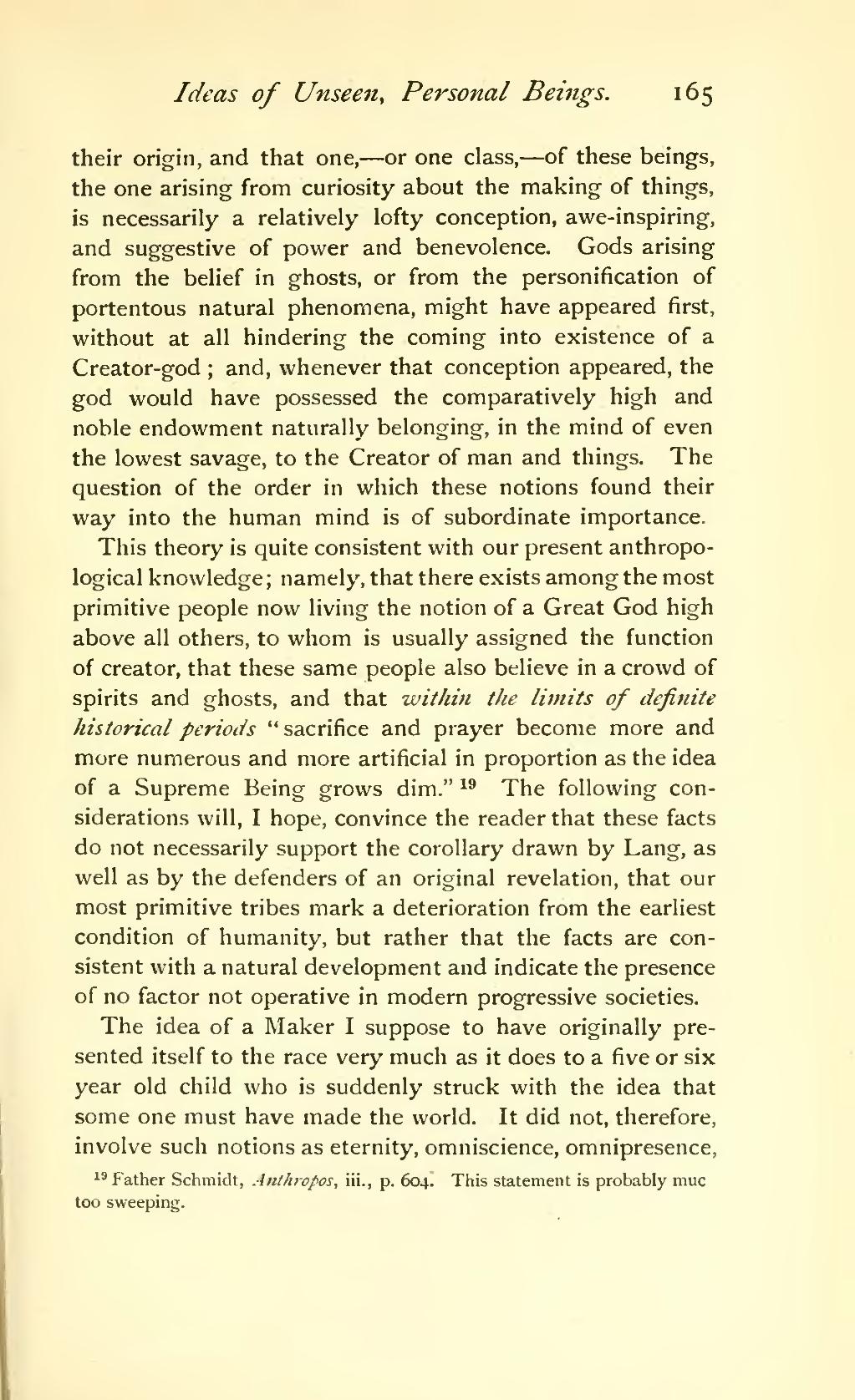their origin, and that one,—or one class,—of these beings, the one arising from curiosity about the making of things, is necessarily a relatively lofty conception, awe-inspiring, and suggestive of power and benevolence. Gods arising from the belief in ghosts, or from the personification of portentous natural phenomena, might have appeared first, without at all hindering the coming into existence of a Creator-god; and, whenever that conception appeared, the god would have possessed the comparatively high and noble endowment naturally belonging, in the mind of even the lowest savage, to the Creator of man and things. The question of the order in which these notions found their way into the human mind is of subordinate importance.
This theory is quite consistent with our present anthropological knowledge; namely, that there exists among the most primitive people now living the notion of a Great God high above all others, to whom is usually assigned the function of creator, that these same people also believe in a crowd of spirits and ghosts, and that within the limits of definite historical periods "sacrifice and prayer become more and more numerous and more artificial in proportion as the idea of a Supreme Being grows dim."[1] The following considerations will, I hope, convince the reader that these facts do not necessarily support the corollary drawn by Lang, as well as by the defenders of an original revelation, that our most primitive tribes mark a deterioration from the earliest condition of humanity, but rather that the facts are consistent with a natural development and indicate the presence of no factor not operative in modern progressive societies.
The idea of a Maker I suppose to have originally presented itself to the race very much as it does to a five or six year old child who is suddenly struck with the idea that some one must have made the world. It did not, therefore, involve such notions as eternity, omniscience, omnipresence,
- ↑ Father Schmidt, Anthropos, iii., p. 604. This statement is probably much too sweeping.
